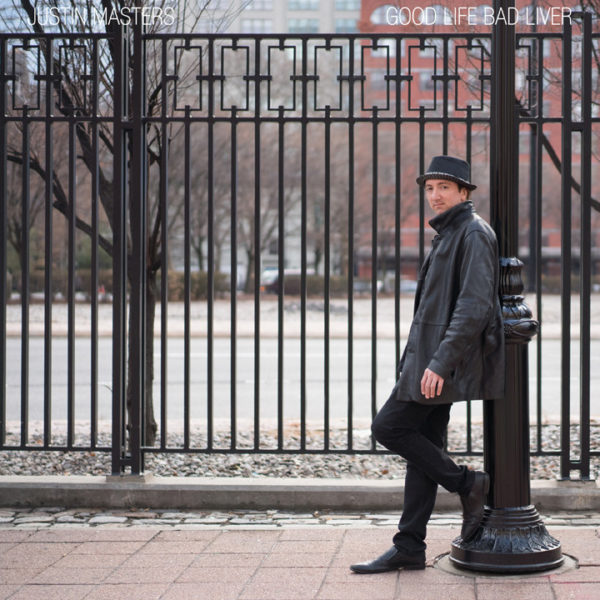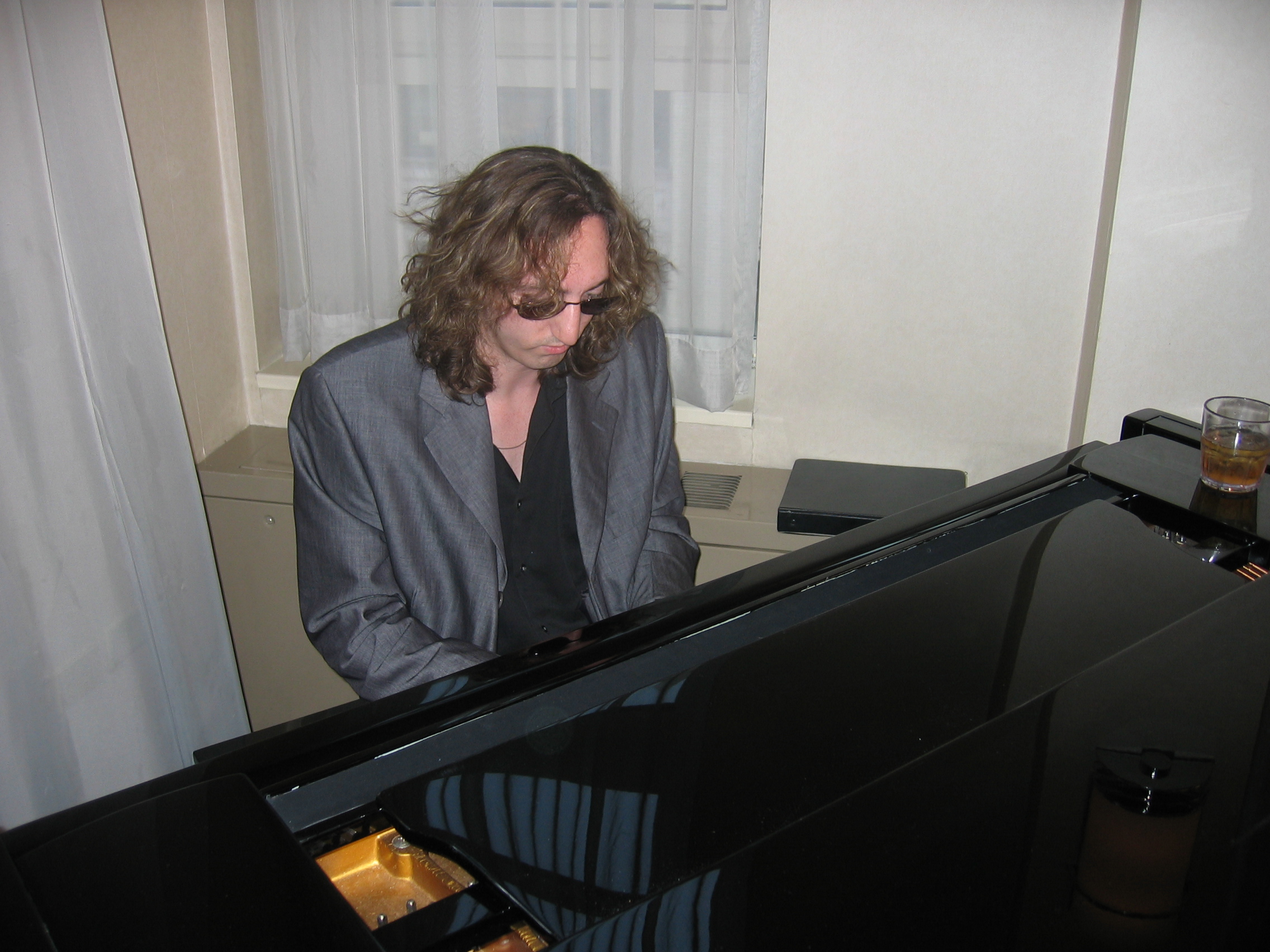interview by Michael McCarthy
In the early ’90’s, many of the hair bands I grew up listening to put out some of their best albums. Unfortunately, there were so many hair bands by then that the market was over-saturated. It had reached the point where it was like the last days of disco, tipping the scales just unfavorably enough that something else could worm its way onto the scene and knock it flat on its ass. With disco, punk was the assailant quick to shove a knife in its back. With hair metal, the poison was grunge and there was no antidote. People were tired of guys who used two cans of Aqua Net hairspray every morning before they left their over-crowded apartments off the Sunset Strip in Los Angeles. Instead, they found themselves rooting for guys who dressed like they’d just come from a thrift shop in flannel shirts and faded jeans. Guys who came from Seattle, where it rained all the time, not the California sunshine.
My response to this came in1994 when heavy metal bands were dropping like flies and it was not to run out and buy a copy of Nevermind. It was to start a hair metal zine to give my favorite bands the coverage they deserved. In hindsight, I was naïve to think that I could take the place of Metal Edge, but I was a bipolar kid on a manic ride, so hell be damned if I didn’t try. Speaking of Metal Edge, it was around that time that fellow Masshole Justin Masters dropped me a line. We soon went from being pen pals to talking on the phone regularly. The next thing we knew, we were catching a Warrant show together, having a great time. Unfortunately, my zine, Ant, The Only Cool Magazine that Bites, ended up being a huge time suck and Justin and I lost touch.
Cut to roughly 22 years later when I received an e-mail from Justin a couple of weeks ago. He’d recently discovered Love is Pop and was happy to see how I mix heavy metal bands with modern rock, pop, and everything else I cover here, rather than avoiding “hair” bands the way many other sites do. I believe he was also relieved to see that I covered music outside of the metal realm because he’d put out an album earlier this year that he wanted me to check it out. Now, that had me feeling a bit like a deer in headlights. I was very happy to hear from him, but what if I didn’t care for the album? I mean, what would I say? “Great to hear from you, but the album is pretty bad.” That would’ve been awkward. But there was no point in waiting to tear off the band-aid, so I immediately downloaded the record, which he’d given the amusing title Good Life Bad Liver. Well, as it turns out, the album is great! I feared it would be full of songs like “Girls Girls Girls” and “Talk Dirty to Me,” but it was a much more mature record with thought-provoking lyrics that told stories. It had much more in common with Bruce Springsteen and Eddie Money than it did with Motley Crue and Poison. That’s not to say it was lacking in hooks, as its 12 songs are packed with infectious guitar melodies and catchy choruses, but it’s definitely more like singer/songwriter rock than heavy metal. As it turns out, Justin has as many colorful stories to tell as he does to sing about, and he tells plenty in our interview, which was conducted on the 23rd of September, 2017. In fact, he had so many stories that I’m dividing the interview into two parts. So, enjoy part one today, give his album a few or more spins this weekend, and we’ll be back next week with part two.
MM: I know you’ve been living in New York City for about 20 years now. What year did you move there?
JM: 2000. October 30th, to be exact. It was the day before Halloween.
MM: What made you decide to move there from Massachusetts?
JM: A cousin of mine, actually, has a company. His father was the owner and he passed away. He reached out to me to come to work with him and how would I like to come to New York? And I was in my early 20s at the time, living in an apartment in Massachusetts and things were going just fine. I’ll tell ya. I was making 11 bucks an hour. My rent was $435 a month. And my car insurance was a hundred a month or something like that. So, he offered me all this money to move to New York and then [Laughs] he was like, here’s your rent, it’s gonna be 1400 a month and the car insurance is gonna be four grand a year. I was like, oh, shit. For the first five years in New York I was literally living in a basement apartment. I thought I was gonna move into a penthouse suite. [Both laugh] I was gonna walk to Central Park every day. It didn’t really work out like that. But, yeah, it was basically a cousin of mine that I knew my entire life. That was really cool.
MM: So, when was your album released? I know it’s been out at least a couple weeks now.
JM: It actually came out on my birthday back in April. For the time being, it’s strictly digital. I did print up some promo CDs. I think I’m going to put out a CD at some point. I like the physicality of it. It just feels a little more definitive when it’s an actual product you can hold in your hands.
MM: So, when did you decide to make a solo album?
JM: I was just living, day after day, year after year, with nothing to show for it. Long story short, I needed something to show for all the years I’ve spent playing. No matter who you are, I feel everybody should have some creative outlet. Whether it’s music or writing or carpentry or working on auto-body or cooking – whatever you do – everybody has some kind of passion. That’s what this is. Something to show for it.
And it was a long time coming. It honest to God was. I have Pro-tools at home. So, I was recording songs. The guitars, the keyboards and the drum machine and I was singing. And, to me, it sounded pretty good. The next step was that I wanted to hear it with live drums. So, I reached out to Jason Harrison, who was in a band with me once upon a time and we had been in touch over the years as well. And he had actually just had back surgery. So, what you hear on here is the first things he recorded after surgery and physical therapy and everything that he went through.
I’ll tell ya, when I put the live drums into Pro-tools I had to remix the whole entire thing. Because if you’ve never played with a drum machine, it’s very compressed and it doesn’t have the dynamics that real drums have. All the reverbs and stuff that sounds really cool had started to sound artificial, especially for my kind of music. So, I ended up remixing the whole thing, just around the acoustic drums. And – I’ll be honest – I actually have two albums completed. Two hours worth of songs completed.
MM: So, you basically recorded a double album then?
JM: What I did was once it was all finished I was trying to decipher what I was gonna put out. Because I can’t put out 24 songs. So, I was thinking at one point to do a hard rock record and then do an acoustic record or, you know, just take the lyrical content. Ultimately, what I decided to do was take the songs that I had written as an adult during the past seventeen years of living in New York. Those are the songs that make up the record. That’s why it’s more mature. It’s not really a fun, party album. It’s a songwriter album with the lyrics and the emotions that you go through when you’re older. You’ve got a little more time to reflect on things. And I had finished it, too. I even sent it out for mastering. But I’ll tell you, when it was all said and done, I didn’t feel like it was a finished product. So, ultimately, it came down to the vocals. I was just a little too in touch with it, you know? It just was a little too revealing. So, honestly, I went out looking for the perfect singer and, I swear to God, I found him. Zach Allen is a beautiful fit. His vocals naturally take the songs to a more commercial, accessible point where I wanted them to be. So, really, it was a complete body of work at that point. I’d sent it out to Ted Jensen for mastering.
MM: So, what was the first song that you wrote that’s on the album?
JM: The first song. “Crazy Way to Live.” As a matter of fact, I wrote it in a hotel room the first time I ever went to Las Vegas. And I have it somewhere. I have the lyrics written on the back of hotel stationery. So, it was me and the ghost of Dean Martin writing that one. That sums up the whole record, too. I didn’t know it at the time, but that was gonna sum up the next 17 years of my life. That song really opened the door to what this album is.
MM: And what was the most recent song written?
JM: I believe “90 Minute Love Affair.” Towards the end. It’s a traveling song. And I actually wrote that one on an airplane coming home from Hong Kong.
MM: So, when you write songs, do you start with the lyrics?
JM: Yeah, it usually starts with a lyric. With an idea. Maybe even the melody comes in and as soon as that happens I really just automatically know what I want the songs to be, whether it’s gonna be an acoustic mid-tempo song or a rocking song. A song like “King for a Day” – I was obviously not having the best of times so I knew that was gonna be a more moody atmospheric kind of song. You really get to color it with the arrangements. And that’s something where I think me and Jason, the drummer, really helped bring out the dynamics in the songs. So, it doesn’t sound like one song, 12 times. There’s a lot of different colors on this record.
MM: And where was it recorded?
JM: It was recorded at home. I recorded it all except for the drums. Everything was recorded at home. I was just so happy with how everything came out. There was no need to re-do it all. And I want you to know, it didn’t really take me 17 years to make the record. That’s just the time period that everything was written in. It was all recorded over the past five years or so.
MM: Do you still use Pro-Tools or do you use a different program now?
JM: It’s all Pro-Tools. I use the Shure SM 57 mics on the guitars and the SM 7B on the vocals and I have a couple of direct plug-ins and what not. Everybody’s using plug-ins now. Even producers like Michael Wagner and Bob Rock. It’s all plug-ins now. Nobody wants the outboard gear anymore. That’s ultimately what happened here. I was just like, why bother going to a studio just to have somebody else use one of his plug-ins. [Laughs] There’s no need to go to Vancouver. Or L.A or wherever the hell anymore.
MM: I tinker around a little bit with a program called Acid Pro. So far, I’ve just done remixes. I don’t know what kind of album I want to make. The problem that I have is that I’m so uneducated when it comes to music. I don’t know what an A note sounds like versus an E or I don’t know any chords or anything like that. I’ve got tons of loops and samples – like more than you could possibly count, but I don’t know which guitar chord belongs in front of another guitar chord and things like that. So, I could probably learn a lot from you.
JM: The mixing is a whole other aspect. When I had mentioned that the record was already done with my vocals and mastered, I’m actually deaf in one ear. So, I actually had everything mixed hard center because I can’t hear in stereo. I can’t hear left and right. I either hear it or I don’t. Honestly, what happened was – even after I got all the drums and I did all the vocals with Zach – and after I’d remixed it and sent it to Ted Jensen, he wrote back to me and he was like I can’t work with this. And my heart was absolutely broken. I thought Ted was saying he’s not gonna work on the project. I was like, oh, fuck, my whole life is fucking ruined. And he said, no, you gave me these in mono. Can you give me more of a stereo mix? And I’m like, fuck, you know, I’m deaf in my left ear. So, at that point I actually did hand it over to a couple other people to mix it. But I didn’t like their mixes. One of them was too 80s rock sounding and the other one was too piano rock sounding. So, I really wanted something that was more of a Bob Seger, Mellencamp, Bon Jovi, Springsteen kind of thing. A nice mix of rock and the piano. So, that took me months to mix in stereo. Ultimately, what I had to do, I had to shut one speaker off and just play the other speaker or I would move the other speaker to the right or use one headphone. It took me at least twice as long because of that and there’s actually a lot of stereo stuff going on. If you listen to it on headphones.
MM: Yeah, definitely. It uses stereo really well.
JM: I’m proud of it, but I can’t actually hear it. [Laughs]
MM: That’s funny. It does sound great in stereo, though. A guitar part will be in one ear and the drums will be louder in another. Stuff like that. I really enjoyed that. I think it adds color to it when things are in stereo.
JM: It adds some space to it and that’s what I love. You can hear every instrument. And that’s ultimately what I wanted. I didn’t want anything buried in the mix. And I didn’t want anything to be overly compressed. Or too much effects or anything. So, it’s a real natural sounding record and I don’t know why the hell it took me so long to make, you know? That’s how it goes sometimes. You’ve gotta make all the wrong mistakes, you know? And figure it out. That’s how it went.
MM: I know you were playing guitar back when we first met, but did you ever take lessons or is it all self-taught?
JM: In the very beginning, I started out taking lessons. And reading and theory. But it took three years and I was still playing the rudimentary kind of stuff. I wasn’t playing real songs. I was just reading from a book. And after three years of doing that I was just like, oh my God, I’m never gonna learn how to play. I actually gave up and threw my guitar in the closet for a year and then I just one day picked up one of the books. Teach Yourself Rock Guitar with all of the chords and different modes and I really taught myself from that point now. That lead to wanting to play some keyboards and some piano. So, that was 100 percent self-taught. So, that was ultimately it. I always wanted to write songs, too. I wasn’t really a guitar player. I always wanted to play songs. That’s what this was all about. So, my playing always lends itself towards that.
MM: So, you produced the album yourself then, right? You did all the production and have the credit?
JM: Yeah. That was all the hard work that was put into the recording and engineering, if you will, and the mixing and all that, yeah. It had to be that way.
MM: You said the album was recorded over about five years. When did that period begin?
JM: It may have been a little bit more than that, to be honest with you, but, no, it was completed right around April. So, “90 Minute Love Affair” and “Can You Blame Me For Loving You” were written at the end of the year right around October, November, December. At that point, I knew the record was done. I really felt like I had a collection of songs that just summed me up. That was the point where I said, if I add to this I’m gonna have to take something out. So, this is it. It’s done. And at that point, I sent it out for mastering. So, that took a little while. At first, I was actually just gonna do a single. Just to show you how old school I am. [Laughs] I actually thought people still did three-song demo CDs. I was just gonna do a three-song CD. But that lasted like a week. Everyone was like, where’s the rest of it? It was like, ok, ok, ok, ok. [Laughs] So, immediately I went back and said I’ve gotta do the other nine songs now. That took a couple of months and, being the primadonna that I am, I actually rejected a couple of his masters. [Both laugh] I actually had him do four songs over again, which he was not very happy about. It’s really funny. I can’t believe I actually did that. I just had to. Just to make it all sound the way I wanted to. But I’m so extremely happy with how it sounds. It sounds so clean and just to have his name on it just means the world to me. It was not a collaborative effort. I had all the things recorded. So, getting Jason and getting Zach helped to make it more collaborative and then having Ted as the final seal of approval that this is a complete record was amazing. He’s done everything from Billy Joel to Huey Lewis to Kid Rock and Daughtry. He’s got thousands of CDs in his profile. I think if you go to Sterling Sound you see my picture next to Michael Bolton and Nickleback. [Both laugh] He’s always working on multiple albums. But there’s a true art to that. The engineering side of mastering. People don’t don’t understand, that’s not finished. Especially guys like me. You do have to have that mastered product. That EQ processing and everything so all the songs have a common denominator. That, to me, was the official sign that this was a complete record.

MM: At what point did you come up with the title Good Life Bad Liver?
JM: I think I was gonna call it Crazy Way to Live and I was gonna make that the first song. Then I was out to dinner one night with a couple of people and I’m like, hey, I’m gonna be putting out a record. They look at me and go, what’s it gonna be called? I actually said Justin Masters: Greatest Hits. They looked at me and they were like, oh, please. For me, it was like, no, I’m not like a 16 or 18 year old guy playing my first twelve songs. These are like my greatest hits. So, I was gonna do that. But at the time it wasn’t just gonna be the 12 New York songs, though. I was just gonna pick out whatever 12 songs I wanted. I wanted to do Greatest Hits Volume One and Volume Two. Then I realized how pretentious that actually was. That nobody was gonna get the joke. So, I said, Good Life Bad Liver. It just happened. Right there at the dinner table. I just had to shake my head and go, yeah, that pretty much sums it up. The guy that had every opportunity to make something of himself to have a better life than he did and somehow he kept fucking it up. In the remake of The Gambler there’s this one scene where the girl looks at this guy and goes you’re a perfect example of a guy who has no problems and goes out of his way to make sure he has all of them. That’s me. I don’t know why. For some reason, I just always get in trouble. Always have some kind of fucking issue going on that just overshadows all the good things that are happening to me. So, Good Life Bad Liver.
MM: Where did you take the interior shots for the album art? Is it a hotel?
JM: The interior shots were actually taken at the Nomo Soho at the Mondrian. It is a hotel bar.
The back cover is from right downtown in New York. So, hopefully, one day that will become a little spot on the tour bus that goes throughout Manhattan. They’re gonna say this is where the photo shoot for Justin Masters’ Good Life Bad Liver was taken. It’s right there across from the Canal Street train station right by the Holland Tunnel.
And I like the simplicity of it. The back cover of me walking away was inspired by Rocky. There’s one scene in Rocky one where he’s on the docks and he’s going to collect some money for the guy and then the piano music plays and he walks away. That’s where that came from. And the cover of me with the hat by the post is kind of like the new Frank Sinatra, you know what I mean? I didn’t think about that when the shot was taken, but it has a little Frank Sinatra, Rocky Balboa thing going for it. And then you get me in the shades with a drink in my hands and the girl looking the other way.
Read part two of our interview with Justin Masters.
Visit Justin online for lyrics, photos, liner notes and more: http://www.justinmasters.com./
And don’t forget to listen:






Leave a Reply to Riley Cancel reply